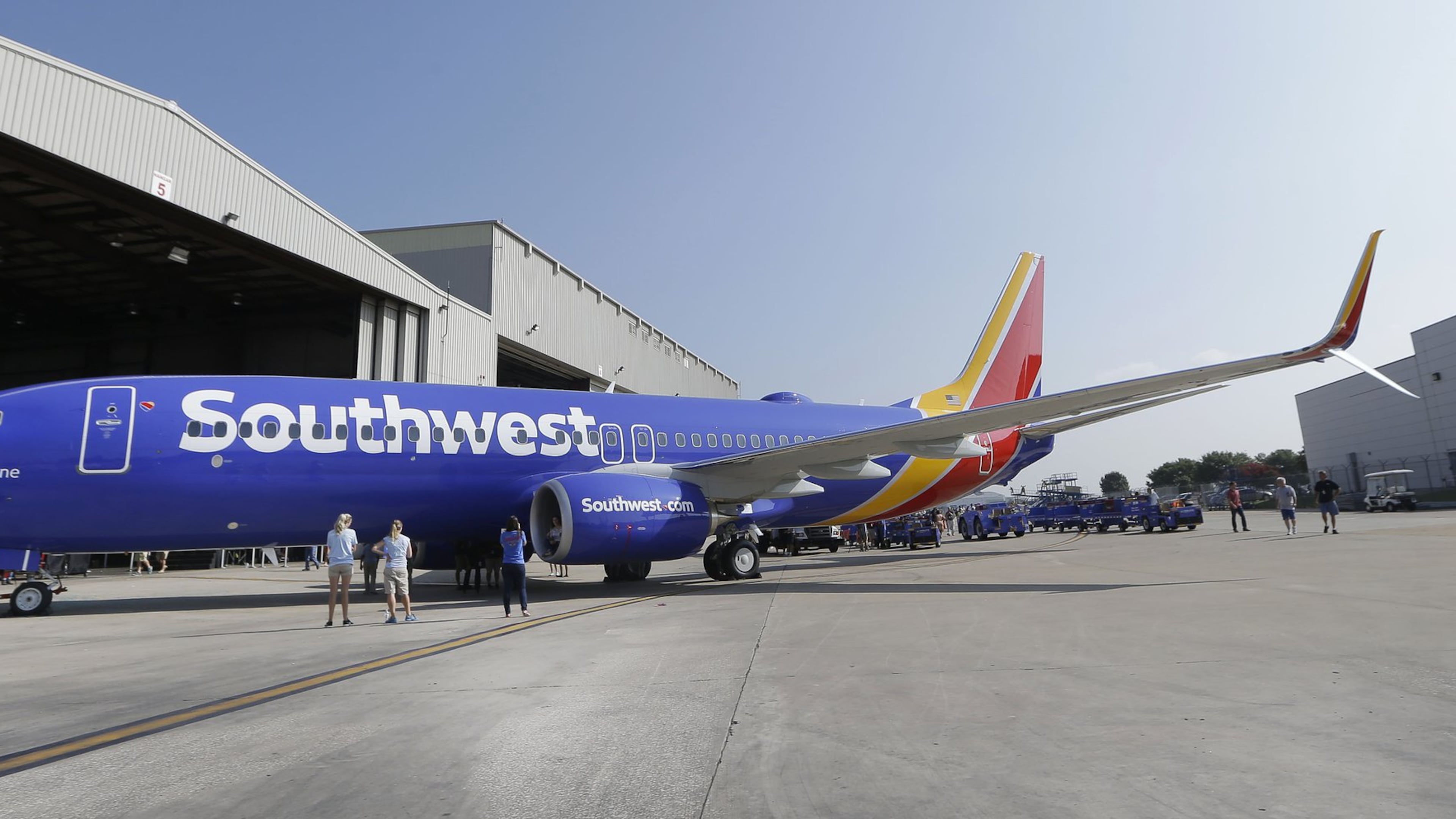Delta, Southwest in epic gate battle at Love Field

Delta Air Lines doesn’t often find itself playing David to another airline’s Goliath.
That’s the case though — at least as Delta sees it — in an unusual dispute over the use of gate space at Love Field near downtown Dallas.
Delta uses the space for five daily flights between Love Field and Hartsfield-Jackson International. But rival Southwest Airlines, which is based at Love Field and controls most of its gates, contends Delta no longer has any right to use the space and is essentially trespassing.
Southwest’s efforts to dislodge Delta have mushroomed into a lengthy and tangled legal battle involving the airlines, the city of Dallas, federal agencies and platoons of lawyers.
No end is in sight. The latest legal ruling, last winter, granted Delta an injunction allowing it to keep using the gate space for its Atlanta flights while the case plays out. Southwest has appealed.
The issue reflects how contentious gate space can be at big city airports where airlines fight for extra slivers of market share.
“This is a problem worldwide,” said airline consultant Bob Mann, based in Port Washington, N.Y. “It’s about incumbent carriers making it difficult for new entrants to enter, and it happens everywhere.”
It also plays into the strategic chess game between Delta and Southwest, which are not only the top rivals at Hartsfield-Jackson but compete across the nation.
Southwest, for its part, argues Atlanta-based Delta is the bully of the story.
“Delta — the second-largest airline in the world — is not by any measure the victim of anticompetitive behavior by Southwest,” Southwest attorneys wrote in one brief. Delta’s behavior “is an anticompetitive trespass on Southwest’s property rights.”
Delta contends just the opposite.
‘Five flights too many’
“Delta operates five flights per day from Love Field to its hub in Atlanta,” Delta’s attorneys wrote in a brief to the appeals court. “For Southwest, that is five flights too many.”
The dispute stems in part from Love Field’s odd history. For decades airlines there were limited to shorter-range flights under the Wright Amendment, an act of Congress that preserved Love Field after Dallas-Fort Worth International was built in the suburbs.
Southwest grew into a national power from its base at Love Field, largely insulated from local competition by the flight limitations. But in 2004 it began an effort to repeal the Wright Amendment so as to allow longer flights. That finally happened in 2014.
Meanwhile, Delta had started flights from Love Field in 2009 by subleasing gate space. A web of leases and sub-leases involving multiple carriers eventually landed the two gates Delta shares in the hands of Southwest, with Delta allowed to continue its operations until mid-2015.
Since then, Southwest contends, Delta has been a gate-squatter.
Delta contends it should be able to keep using the space under U.S. Department of Transportation policy that requires airports to “accommodate” competition where space is available. The city of Dallas, which risks alienating either airline, turned to the courts to referee.
Delta argues that when Southwest in 2014 paid $120 million to sublease the two gates from United Airlines, including the Delta space, it was a move to keep the gates from Delta.
That shows how much the gates are worth, Mann said.
A gate at Love Field is “a scarce asset,” he said, particularly because Love Field is capped at only 20 gates, and some travelers prefer it for its location just six miles from downtown Dallas. If Delta can maintain access by winning the legal fight, that itself is an asset worth millions.
A larger rivalry
Meanwhile, beyond the boundaries of Love Field, a much bigger rivalry between Southwest and Delta has intensified.
At Hartsfield-Jackson, Delta operates its largest hub and controls more than 80 percent of the market. Southwest had long wanted to enter the world’s busiest airport, but couldn’t get as much space as it envisioned — until 2011 when it bought AirTran Airways, the No. 2 carrier in Atlanta.
That allowed Southwest to enter Delta’s turf in a big way, prompting many in the industry and the investor community to question how Delta would fare against the No. 1 low-cost carrier in the nation.
Today, Delta is still the largest airline at Hartsfield-Jackson, leasing 117 gates there and using another 41 that can be shared with other airlines. Southwest is No. 2 in Atlanta with 18 leased gates.
In the Love Field case, Delta is staging its own challenge to Southwest’s domination of its home airport.
“There’s 165 gates down the road at (Dallas-Fort Worth International),” Southwest attorney Eric Pinker argued in appeals court. “Delta can expand to its heart’s content at DFW.”
Delta has long operated at DFW and once had a hub there.
But it says the Love Field flights are favored by many travelers, especially those doing business in downtown Dallas. Without service to Love it would be at a disadvantage to Southwest on the route.
“The size and location of Love Field make it uniquely convenient for our customers who want to travel to downtown Dallas, and we believe that makes it worth fighting for,” Delta said in a written statement.



